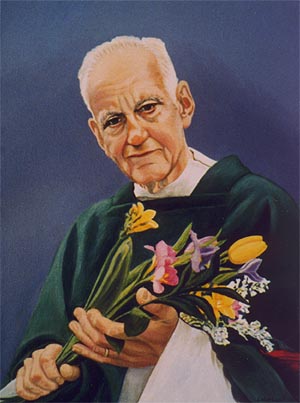Father Paul Wessinger, SSJE
By: Dr. Gregory S. Neal
One of the things that the monks of the Society of Saint John the Evangelist do which might (but shouldn’t) seem strange to the average Protestant is that they live a life which is formed around prayer, worship, and the Sacrament of Holy Communion. Their normal worship-day looks something like this:
6 am Morning Prayer
7:45 am Holy Communion
12:30 Noonday Prayer
6 pm Evening Prayer
9 pm Compline
Between these times of worship they read, write, teach, work in hospitals, pastor churches, run a publishing house etc., and do the many things that one must do to live from day to day. Gardening, cleaning, and other forms of physical labor are also important for the monks of this dear Monastic Community. As I've shared elsewhere in these articles, these men of faith have long been important for my own spiritual life and growth.
While on retreat at the Monastery I will join the monks in their daily cycle of worship and prayer. I rise at about 5 am and go to the chapel to begin the day with morning prayer. It is wonderful to be able to take part in a worship service without having to lead, preach, or even read the Bible. It was wonderful to receive Holy Communion every day, sing the psalms, and pray without having to worry about anything. It is, truly, a peaceful, prayerful experience. I will also engage in long periods of directed study, directed prayer and meditation, and even physical labor … I spent one afternoon helping a dear monk friend weed the garden … something I never do while at home, but enjoyed doing while there. While on retreat I will also spend some time in spiritual direction with Father Paul Wessinger.
Father Paul has always been able to point me to the Bible when I have been in need of a word from God. An excellent example of this are his parting words to me the last time I was ever blessed to be in his presence: “Read Psalm 16 . . . for yourself, and for your people.” I did, and what struck me the most were the following verses:
O LORD, you are my portion and my cup;
it is you who uphold my lot.
My boundaries enclose a pleasant land;
indeed, I have a goodly heritage.
I believe that God was saying, through Father Paul, that we do, indeed, “have a goodly heritage,” and for me its name is The United Methodist Church. Sure, there are problems in my denomination, but the simple truth is that we are where God has called us to be. Truly, even with all of our problems, this is a pleasant land.
© 2000 Dr. Gregory S. Neal
All Rights Reserved
The portrait of Father Paul is courtesy Ruth Lieberherr.
*Father Paul passed away in 2009. May light perpetual shine upon him. +

As a popular teacher, preacher, and retreat leader, Dr. Neal is known for his ability to translate complex theological concepts into common, everyday terms. His preaching and teaching ministry is in demand around the world, and he is available for public engagements. He is the author of several books, including Grace Upon Grace: Sacramental Theology and the Christian Life, which is in its second edition, and Seeking the Shepherd's Arms: Reflections from the Pastoral Side of Life, a work of devotional literature. Both of these books are currently available from many book stores, including Cokesbury, Barnes And Noble, and Amazon.
